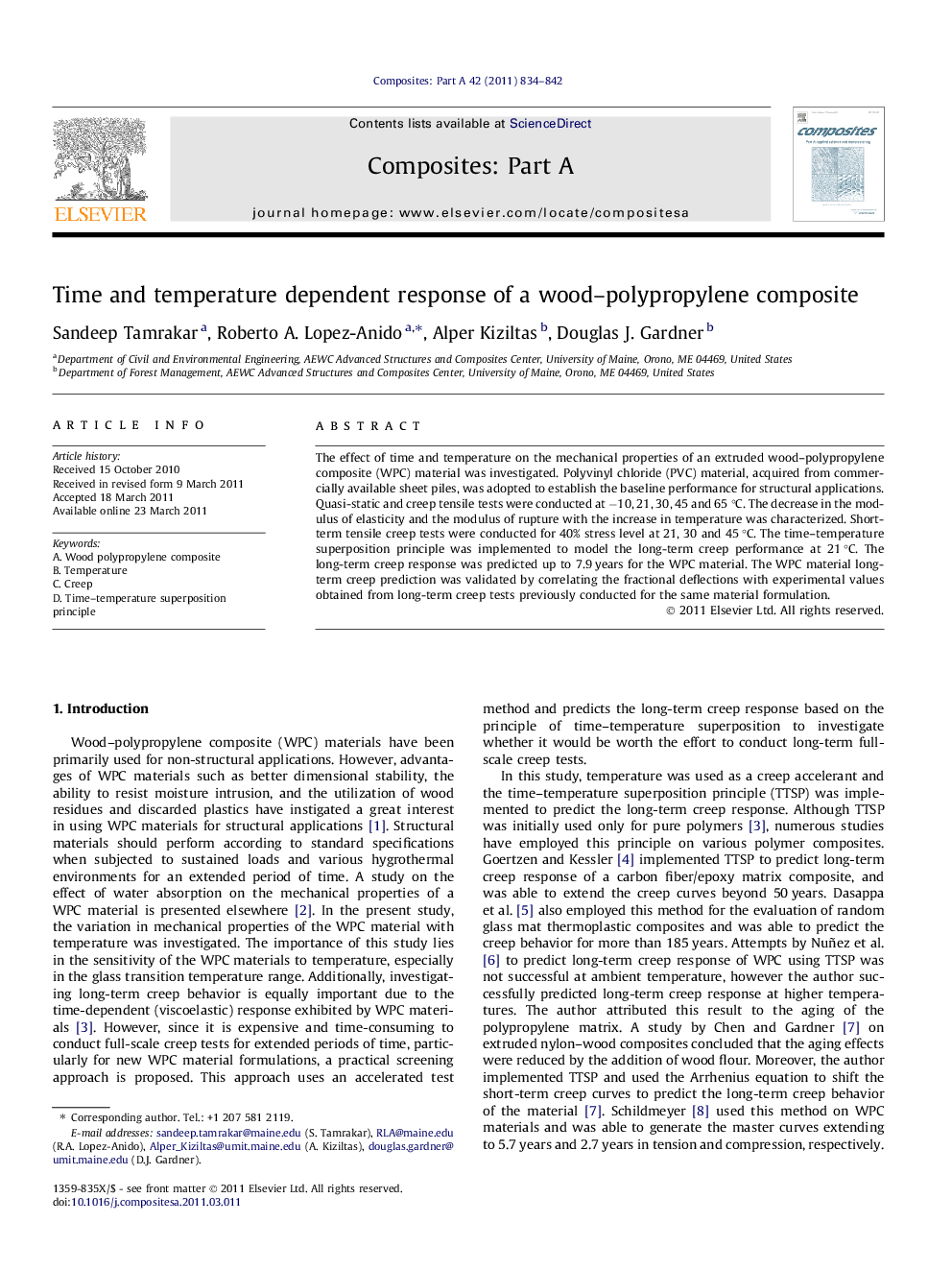| Article ID | Journal | Published Year | Pages | File Type |
|---|---|---|---|---|
| 1466491 | Composites Part A: Applied Science and Manufacturing | 2011 | 9 Pages |
The effect of time and temperature on the mechanical properties of an extruded wood–polypropylene composite (WPC) material was investigated. Polyvinyl chloride (PVC) material, acquired from commercially available sheet piles, was adopted to establish the baseline performance for structural applications. Quasi-static and creep tensile tests were conducted at −10, 21, 30, 45 and 65 °C. The decrease in the modulus of elasticity and the modulus of rupture with the increase in temperature was characterized. Short-term tensile creep tests were conducted for 40% stress level at 21, 30 and 45 °C. The time–temperature superposition principle was implemented to model the long-term creep performance at 21 °C. The long-term creep response was predicted up to 7.9 years for the WPC material. The WPC material long-term creep prediction was validated by correlating the fractional deflections with experimental values obtained from long-term creep tests previously conducted for the same material formulation.
